Visit Us at Booth 410 at the AMA Symposium for the Marketing of Higher Ed in Las Vegas on Nov 10-13 | SCHEDULE A DEMO
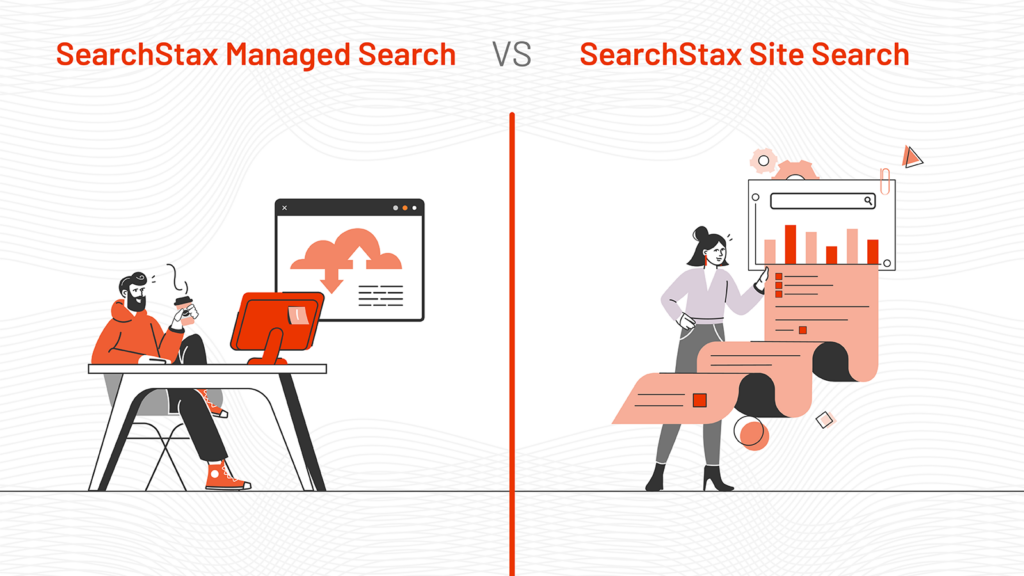
January 16, 2024
Pete Navarra
|
One of the most common questions we get here at SearchStax is about the difference between our two products. SearchStax provides two very different products but it’s easy to understand how the two get confused. To understand the differences, let’s first start with just a quick review of each product.
Our SearchStax Managed Search service automates and manages high-availability infrastructure with shared and dedicated servers for the Apache Solr platform. Solr is a very popular, open-source enterprise search platform built on Apache Lucene. The best way to think of our SearchStax Cloud solution is to consider it as Solr as a Service.
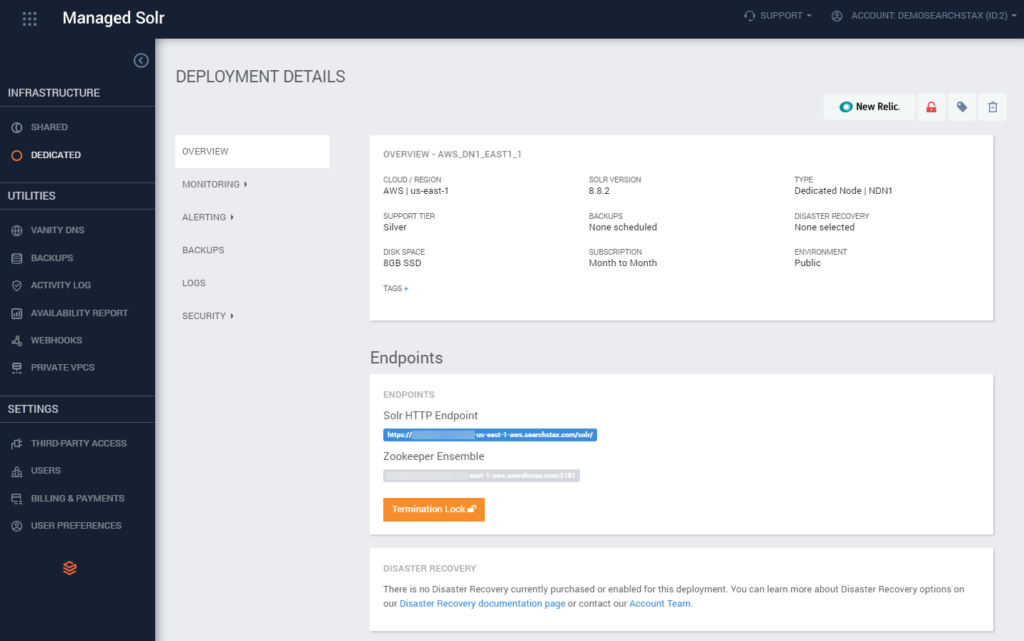
Solr, in its own right, is a very complex system that is extremely difficult for some companies to manage on their own. Several enterprise platforms need an indexing service to assist with recall of content and data, and have chosen Solr for that purpose. Platforms such as the Sitecore Experience Platform use Solr as part of its core infrastructure architecture. Websites on other content management systems, like Drupal and Adobe Experience Manager, also use Solr to manage search on their websites.
There are also a number of custom application integrations that utilize Solr.
The increased complexity of rolling your own Solr is where SearchStax’s Managed Search service comes to the rescue. Solr environments can be deployed on-demand and managed through a variety of support plans, and all of the infrastructure can be hosted on a specific cloud platform of the customer’s choosing.
Azure, AWS, and Google Cloud are the three major cloud computing platforms supported by SearchStax deployments. Managed Search deployments can be as complex as they need to be to support highly available architecture. Features such as Disaster Recovery and Cross Data Center Replication scenarios can be extremely difficult to set up, or they can be as simple as hosting a single Solr index on shared infrastructure.
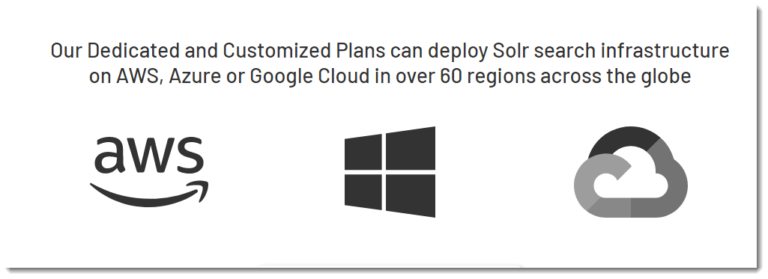
Through our Monitoring & Alerting dashboard (formerly known as SearchStax Pulse), SearchStax Cloud provides a host of analytical information that allows you to see the performance of the hardware hosting Solr as well as how performant the Solr platform is. Monitoring and Alerting is one of the most sought-after features where users can also set up alerts on the key metrics to simplify the monitoring.
All that said, SearchStax Cloud makes it easy to automate many of the mundane tasks often found with managing Solr environments. Managing Solr with Cloud removes the day-to-day management of Solr servers from Developer and DevOps resources with a fully-managed SLA-backed solution.
SearchStax Site Search solution is a SaaS-based site search experience platform for websites and applications. If that sounds unfamiliar to you, consider the last website that you visited where you used their search box. Did typeahead options show up? When you pressed enter or clicked on the magnifying glass icon, did a host of search results appear? Perhaps you’ve seen faceting where you can filter or refine the search results.
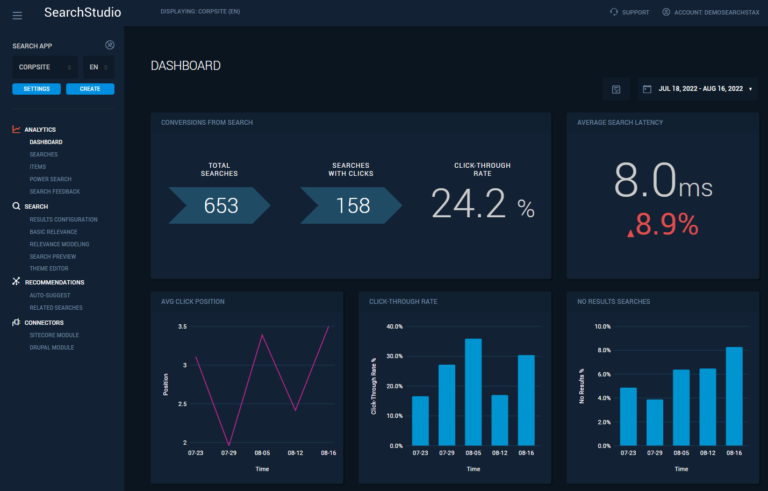
These are all the features that the Site Search platform can provide, plus so much more.
With SearchStax Site Search, you gain access to a number of API’s for the purpose of creating rich website search experience. Inside that search experience, analytics are gathered that provide insight into how search results are performing and whether or not results are getting clicked on.
Other features include faceting, synonyms, auto-suggest, and more importantly relevance modeling that provides the ability to have different search results based on individual models. You can adjust ranking (or boost specific fields over other fields in the results), add promotions to push key content to the top of the search results, offer related searches and auto-suggest, and rules to personalize the search results.
Site Search is a complete website search solution that is ready for the modern, composable web.
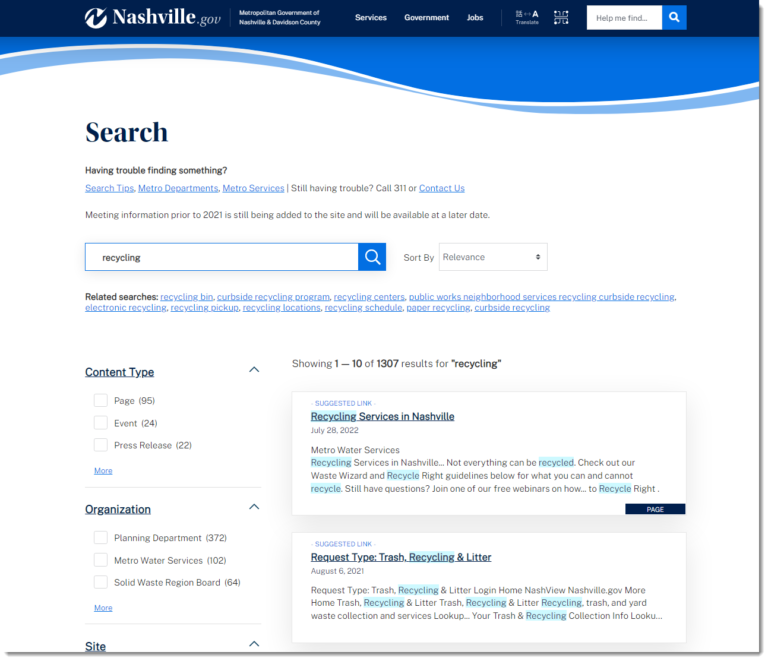
When we think about how they differ, it’s easier to showcase how they are similar. For clarity, these are two completely different products. The confusion exists because of how Studio is deployed.
Managed Search is apt for IT teams where they already have experience with Solr development, have an application that is integrated with Solr and are looking for an As-a-Service/ SaaS based solution to offload Solr Operations and management.
Site Search, however, is for marketing teams who are looking to deliver a rich and personalized search experience for their customers without having to completely custom build all the features and functionalities out of a raw, open source search engine like Apache Solr.
When Site Search is purchased, behind the scenes you are also purchasing a SaaS Solr API that is powering the search experience. You don’t need to buy the Cloud solution separately.
SearchStax provides end-to-end indexing and search results experiences for your entire solution. Customers using the Sitecore Experience Platform, as an example, can power their indexing process and internal content management search functions on SearchStax Cloud while at the same time energize their website search results with SearchStax Studio bringing together powerful search results and hassle-free managed Solr.
Interested in either of these products? SearchStax offers a free, 14-day, no strings attached trial for SearchStax Managed Search. You can also contact our Sales team to get a hands-on demo of either product.
The Stack is delivered bi-monthly with industry trends, insights, products and more
Copyrights © SearchStax Inc.2014-2024. All Rights Reserved.
SearchStax Site Search solution is engineered to give marketers the agility they need to optimize site search outcomes. Get full visibility into search analytics and make real-time changes with one click.
close
SearchStax Managed Search service automates, manages and scales hosted Solr infrastructure in public or private clouds. Free up developers for value-added tasks and reduce costs with fewer incidents.
close
close